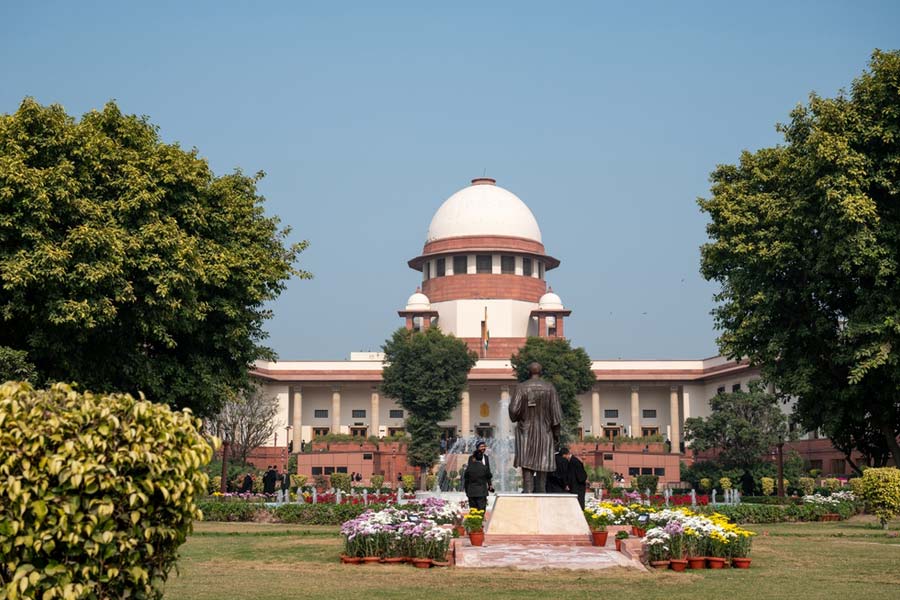The Supreme Court on Monday said the appointment of Naima Khatoon, Aligarh Muslim University’s first woman vice-chancellor, appeared prima facie improper since her husband had as officiating vice-chancellor been part of the process that shortlisted her.
Khatoon was appointed to the post in April last year.
“Normally, even when we sit in the collegium matter, when a junior member from the Bar (of any collegium member) is under consideration (for appointment as a judge), we also recuse,” Chief Justice B.R. Gavai told solicitor-general Tushar Mehta and additional solicitor-general Aishwarya Bhati, both appearing for AMU.
“Certainly, here also the husband’s participation when the wife’s name is under consideration — it raises doubts…. It is always said that things should not only be done properly but also be seen to be done properly.”
The bench, which included Justice K. Vinod Chandran and Justice N.V. Anjaria,
was hearing a petition from senior AMU professors
Muzaffar Uruj Rabbani and Faizan Mustafa, who have challenged Allahabad High Court’s refusal to quash Khatoon’s appointment.
The high court had, however, expressed concern at her husband, Mohd Gulrez, having been part of the selection process.
Mehta and Bhati defended Khatoon’s appointment as conforming with established procedure, and highlighted that she was the university’s first ever woman vice-chancellor.
Senior advocate Kapil Sibal opposed Khatoon’s appointment as it had been validated on the basis of two votes, including one cast by her husband.
“If this is the way vice-chancellors are appointed in the country, then I shudder to think what will happen in future,” he said.
Justice Gavai noted that even Allahabad High Court had, while refusing to quash the appointment, observed that it would have been better had Gulrez walked out of
the meeting and allowed the next senior-most person to chair the selection
committee.
While Mehta agreed that Gulrez should ideally have recused himself, he emphasised the need to fulfil the legal requirements of the selection process.
He referred to the Supreme Court judgment in Tata Cellular vs TRAI that held that under the “doctrine of necessity”, the participation of some people in selections or other meetings to fulfil the quorum or some other legal necessity did not vitiate the entire process.
However, Justice Chandran intervened to say he wanted to recuse himself from the hearing as he had earlier, as chancellor of the Consortium of National Law University, selected Mustafa — one of the petitioners — as its vice-chancellor.










